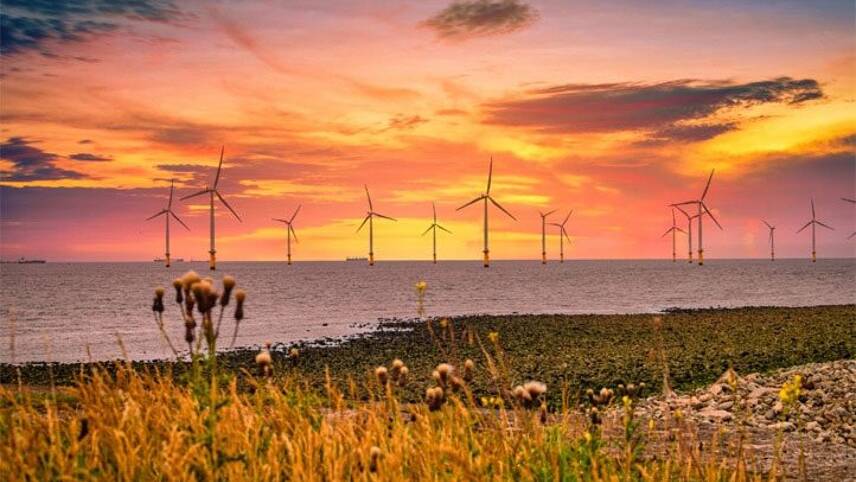Register for free and continue reading
Join our growing army of changemakers and get unlimited access to our premium content

The UK is off track to meet its 2035 commitment to end unabated fossil fuel electricity generation
The new report, published today (7 December) by NatWest and Boston Consulting Group (BCG) has found that there is “significant opportunity” for both private and public investment into the UK’s energy transition that would act as a foundation to help deliver the national net-zero target.
The research found that, currently, more than £900bn in capital expenditure is required to achieve net-zero by 2050.
The report claims that the shift to a net-zero energy supply will involve massive investment into renewable generation, network infrastructure and new technologies such as energy storage systems, carbon capture and storage, and hydrogen.
NatWest Group’s managing director of commercial mid-market Andy Gray said: “The UK needs clean, stable and affordable energy supplies, but huge capital expenditure is needed to make this a reality. This report estimates that the UK’s energy supply needs over £900bn to reach net zero by 2050. Mobilising the capital needed will be complex, and the findings serve as a clear call for all actors across the system to work together to find solutions.
“To decarbonise the UK’s energy supply, the industry needs to scale its infrastructure and technology, all of which will require finance. It’s clear that there needs to be greater collaboration between policy, regulation and finance to enable this to happen. Investment in green infrastructure will help to pay for itself through generating jobs and economic growth, so it’s vital the entire value chain works together to make this happen.”
Failing habits
Earlier this year, a cross-party Committee of MPs warned that the UK will fail to meet its 2035 commitment to end unabated fossil fuel electricity generation.
The Committee’s new report concludes that “a cumbersome planning regime” will undermine the delivery of the 2035 target.
By the Government’s own admission, there has been a 65% increase in planning timelines for large-scale energy generation and infrastructure projects since 2012. Ministers are currently working with the National Infrastructure Commission to reform the process. The BEIS committee heard evidence that, in some cases, renewable generators waited 15 years for a grid connection.
According to the new report, it will be the role of policymakers to provide an enabling legislative environment for banks to work with and support supply chains to overcome current investment challenges.
The report also outlines a key role for businesses, namely by collaboratively testing low-carbon solutions that builds greater grid resiliency for the grid and unlocking new revenue streams.
The report also explores the role of oil and gas as part of the energy transition.
The Government commenced a major North Sea oil and gas licensing round last year and recently set out plans for another this coming season. Last month, 27 new licenses were offered under the former round.
This was in stark contrast with scientific guidance around fossil fuels. The International Energy Agency’s (IEA) 1.5C-aligned pathway to a global net-zero energy system by 2050 includes an immediate halt to all upstream oil and gas projects with long lead times.
The BCG report states that decarbonising the use of gas for fuel supply and electricity generation may still be an option, provided plants are “retrofitted with carbon capture and storage or converted to produce blue hydrogen”. However, this is highly dependent on the state of national infrastructure moving into the 2030s.
The report does express concern that oil and gas levels could remain higher than what is projected under numerous net-zero pathways, including that of the IEAs.
It comes as the Global Carbon Budget report revealed that fossil fuels are projected to hit an all-time high this year.


Please login or Register to leave a comment.